Coffee is one of Europe’s most cherished beverages, but the way it is produced and enjoyed is changing rapidly. Shifting consumer habits, technological innovations, and heightened environmental awareness are transforming the industry from bean to cup.
With climate change threatening traditional coffee-growing regions, innovations such as lab-grown and cell-based coffee are emerging alongside a growing appetite for new flavours and experiences. For context, according to the European Coffee Report 2024-2025, per capita consumption in the EU averaged 5.7 kg in 2023, with significant variations, from high levels in the Nordic region to more modest figures in Southern Europe.
On that note, we went deep to explore 10 of Europe’s most promising startups focused on this brown delight, founded since 2020, each reimagining how coffee can be created, served, and enjoyed.

Almacena: Founded in Antwerp in 2020, this startup is reinventing how coffee is traded worldwide. Instead of farmers selling their beans to layers of middlemen before they reach roasters, it offers a digital marketplace where coffee producers connect directly with buyers. The goal is simple yet powerful: make the coffee trade more transparent, fair, and efficient, so farmers earn more and buyers get better quality and traceability.
To make this happen, Almacena combines easy-to-use software with smart logistics. Farmers and exporters can list their coffee, manage stock, handle contracts, and track shipments all in one place. Buyers can see exactly where the coffee comes from, how it was grown, and who produced it, sometimes even down to the farm level. This business model has had a great acceptance by raising €4.4 million in funding by streamlining the supply chain and using digital tools to cut costs, while fostering trust between coffee growers and consumers.
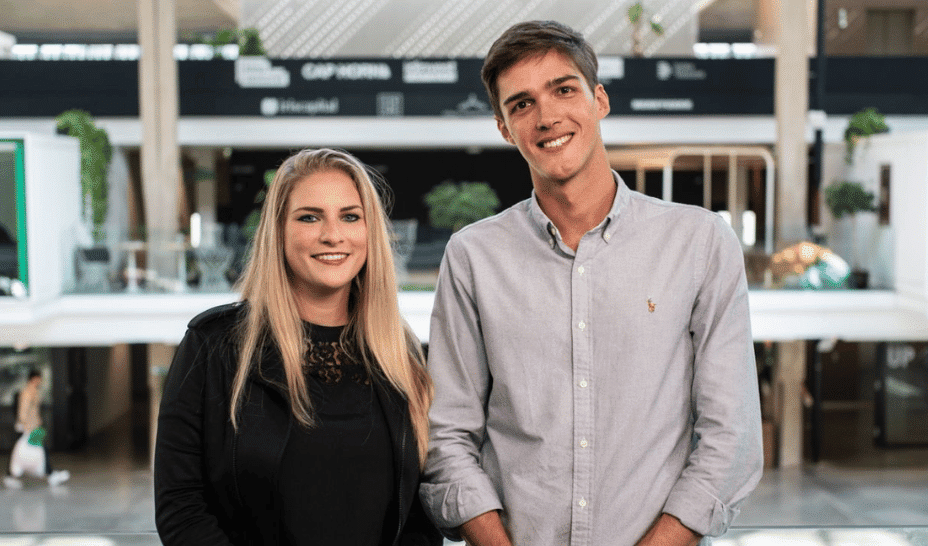
Amatera: The driving force behind this startup is the challenge climate change poses to traditional coffee-growing regions and the desire to find lasting solutions. To address this, it has developed a new coffee plant capable of thriving in harsher conditions. Using biotechnology, the team creates climate-resilient varieties, including a naturally caffeine-free Arabica that tastes just like the real thing. The mission is to protect the coffee industry’s future while keeping its beloved flavour intact.
Launched in 2022 in Boulogne-Billancourt, their work on growing coffee plants from cells in a lab, then applying advanced breeding techniques to give them traits like drought tolerance or disease resistance. This means faster development compared to conventional farming and a more sustainable way to adapt crops to a changing planet. Being backed with €1,4 million, Amatera has created a system to control the entire process from cell to seedling, delivering plants that meet the challenges of tomorrow’s coffee market.
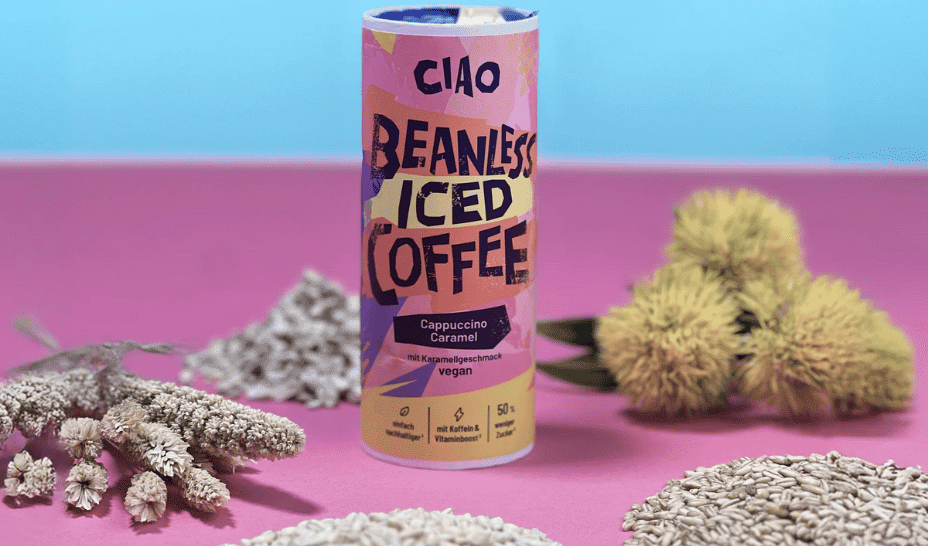
Ciao Coffee: Launched in 2024 in Munich, they found a way to create beanless coffee. Its ready-to-drink canned beverages are crafted from locally sourced oats, barley, chicory, and dandelion root, blended to recreate the flavour and aroma of coffee. The idea is to offer a delicious, sustainable alternative that reduces the environmental impact of coffee farming while still delivering the comforting coffee experience people love.
To achieve this, the team carefully selects grains and roots, roasts and brews them in a way that mimics coffee’s complex taste profile, and then cans the drinks. Because it relies entirely on local, non-coffee crops, production uses fewer resources like water and farmland, and avoids the supply chain issues tied to coffee beans. Having raised €100k, Ciao Coffee resigned itself to losing a great cup.

Coffeeco Upcycle: Based in the south of Europe in Patras, Greece, this innovative startup gives a second life to something most of us throw away: used coffee grounds. Instead of ending up in landfills, these leftovers are transformed into high-value ingredients for skincare and eco-friendly materials. Their mission is to show that coffee can fuel more than our mornings; it can also power a circular economy that benefits both people and the planet.
The process starts by collecting coffee waste from cafés, roasters, and other businesses. Using advanced extraction techniques, the startup recovers natural compounds rich in antioxidants for cosmetic products, while the remaining material is converted into bio-based plastics that can replace petroleum-derived alternatives. By combining sustainability with science, Coffeeco has raised €1 million to reduce waste, lower carbon emissions, and create new products from a resource hiding in plain sight.

Coffeefrom: Founded in 2021 in Legnano, Italy, they combine environmental and social impact by giving used coffee grounds a second life as durable bioplastics and composites. Collected from cafés and factories, the waste is processed through an upcycling method to create materials used in product design, from furniture components to sustainable packaging, reducing reliance on fossil-based plastics.
Alongside developing sustainable materials, it works with organisations that provide employment opportunities for people from marginalised communities. By linking design, manufacturing, and social impact, it offers a practical example of how waste streams can become valuable resources without losing sight of human needs. This deep commitment allowed them to secure €100k in funding.
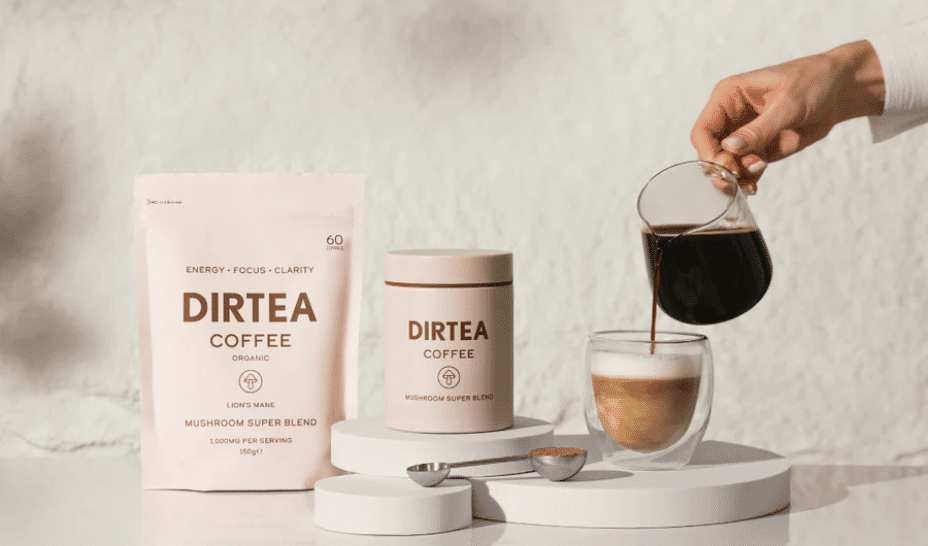
DIRTEA: The London-based wellness startup makes drinks and supplements from functional mushrooms, known for health benefits beyond basic nutrition. These mushrooms are used to help people feel more focused, energised, calm, and to support their immune system. Founded in 2020, DIRTEA offers organic, vegan, gluten-free products such as mushroom-infused coffee, matcha, cacao, chai, and single mushroom extracts like Lion’s Mane, Reishi, Chaga, Tremella, and Cordyceps. So far, it has raised €100k in funding.
To make its products, DIRTEA sources mushrooms sustainably and uses a careful extraction process to keep their beneficial compounds intact. It sells blends, pure powders, and gummies that make it easy for people to add functional mushrooms to their daily routine.
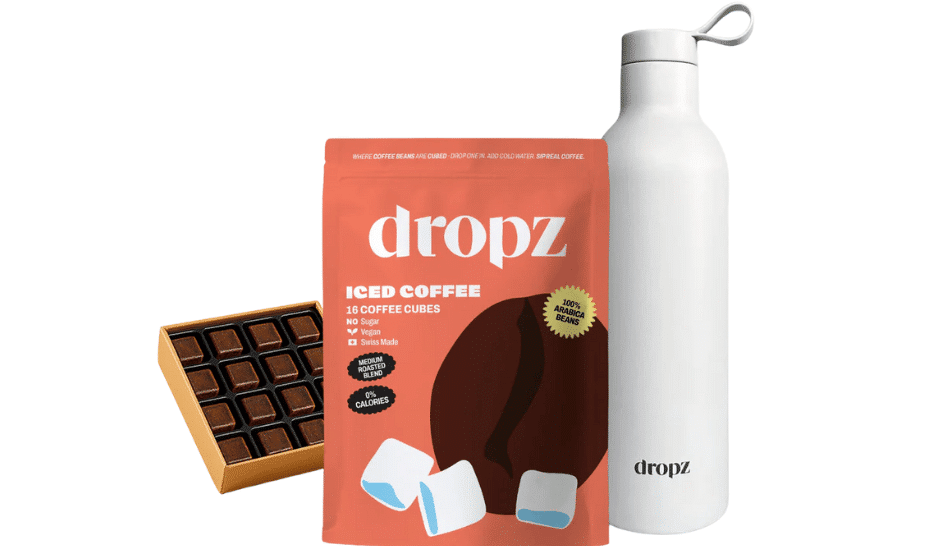
dropz: Launched in 2021, dropz is well known for transforming plain tap water into a vitamin-enriched beverage, with natural flavours and zero sugar. However, lately, they have created a dissolvable cube that captures the full aroma and flavour of freshly brewed coffee. This solution avoids the use of machines, additives, or brewing time.
Crafted entirely from 100% Arabica coffee, these cubes are gently brewed and frozen to preserve their authentic taste. When dropped into water, they dissolve in about two seconds, delivering a smooth, barista-quality iced coffee. Each cube contains approximately 22 mg of caffeine and is made with the same ingredients as real coffee. Recently, the company secured €2.5 million in funding to support the growth of this innovative product line.
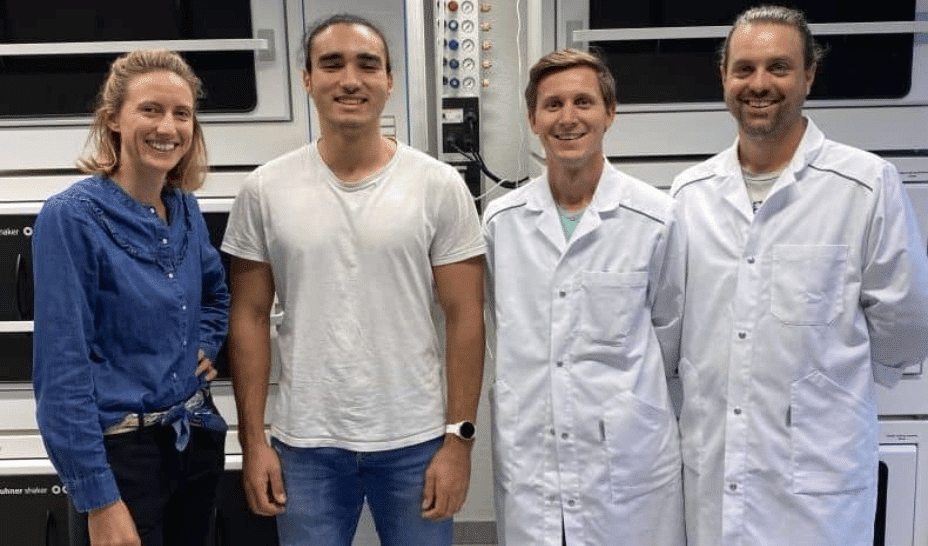
Food Brewer: The Swiss FoodTech startup is specialised in plant cellular agriculture. Instead of growing cocoa and coffee beans on farms, they take individual plant cells from cocoa or coffee beans and cultivate them in controlled bioreactors to create cocoa and coffee powder.
Recognising that traditional farming of cocoa and coffee is increasingly challenged by climate change, environmental degradation, supply chain instability, and rising costs, the startup developed a climate-resilient, sustainable alternative. Producing these ingredients indoors in a controlled environment avoids dependence on soil, weather, or location. Since launching in 2021, Food Brewer has moved from research to pilot-scale production, already creating usable quantities of plant-cell-derived cocoa and coffee. This progress has helped the startup secure €10.6 million in funding.

GoodNews Coffee: Based in Barcelona in 2020, GoodNews blends speciality coffee with the nostalgic charm of newsstands to create a unique socio-cultural experience. Its three-part model includes grab-and-go kiosks, an e-commerce platform with subscriptions, and B2B coffee solutions for offices. Present in Barcelona, Madrid, and Paris, the startup sources ethically and is backed by €15 million in funding to support its growth.
The brand selects beans from carefully chosen origins and roasts them to bring out their distinct flavours. Its subscription service delivers freshly roasted coffee to customers’ doors, often paired with educational content to deepen their knowledge of the drink.
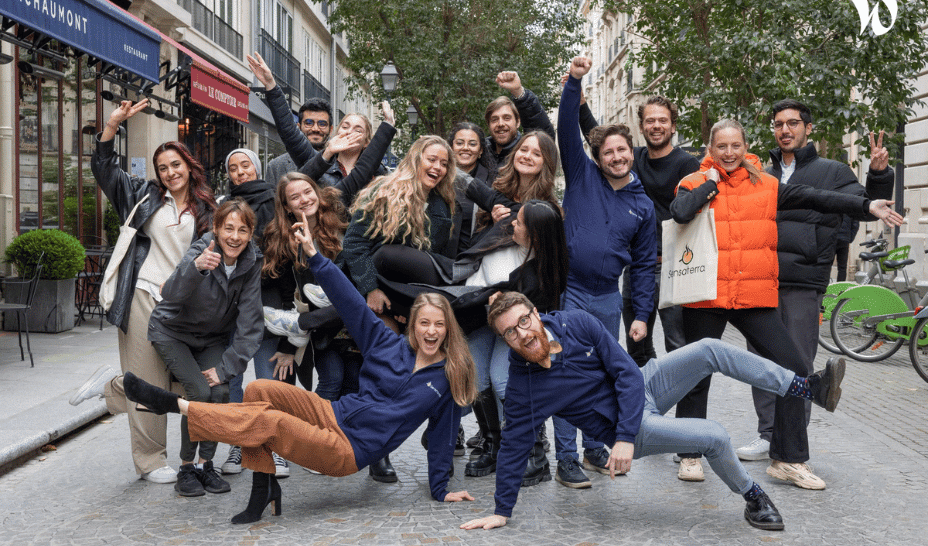
Sensaterra: This Paris-based e-commerce startup, founded in 2020, specialises in premium coffees, teas, herbal infusions, chocolates, and the equipment needed to prepare them. Its online marketplace connects consumers and businesses with artisan producers from across Europe, offering a curated selection that can be delivered directly to their door. The increasing popularity of this option made the startup raise €1 million in funding.
By showcasing independent roasters and makers, Sensaterra gives small producers greater visibility while providing customers with variety and transparency in sourcing. The platform’s mix of quality products, flexible purchasing options, and user-friendly design makes it a go-to destination for beverage lovers seeking to explore new flavours and brands.
By the way: If you’re a corporate or investor looking for exciting startups in a specific market for a potential investment or acquisition, check out our Startup Sourcing Service!
Read the orginal article: https://www.eu-startups.com/2025/08/the-coffee-disruptors-10-european-startups-brewing-the-future-of-coffee/


